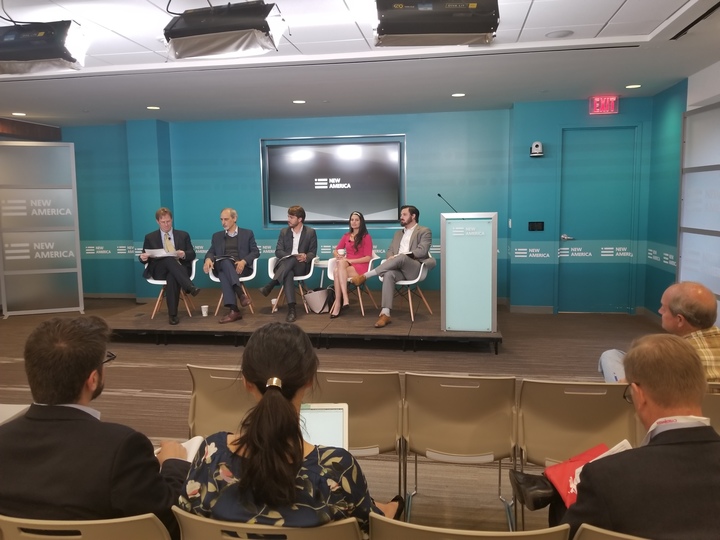WASHINGTON — With the implementation of its new cybersecurity law, China has the tools to match or even exceed the United States as an information technology superpower in expansiveness and regulation, experts said Tuesday.
“China has arrived as an information powerhouse,” according to panelist John Costello, a cybersecurity fellow at the progressive think tank New America.
Costello said China’s cybersecurity law, which went into effect in June, could have a far-reaching effect on how governments regulate cyberspace and digital economies.
“[The law] encompasses key elements of the digital economy, like data, data flows and artificial intelligence,” Paul Triolo of the investment adviser firm Eurasia Group said. “So China is now, in a sense, a leader in some of the regulatory regimes it’s developing globally, along with the [European Union], in getting ahead of some of these key issues.”
“The U.S. is ceding leadership in the regulatory space to China and the EU,” Triolo said. “The U.S. risks ceding global leadership on a whole range of regulatory issues, from cybersecurity to artificial intelligence and other areas.”
China and Europe are defining the role that governments should play in issues of cybersecurity, he said Triolo.
China’s cybersecurity law went into effect on June 1, 2017 and, according to one panelist on Tuesday, gives China the tools needed for it “to carry out its vision as a superpower.”
The law imposes special requirements on entities that operate “critical information infrastructure,” according to an article co-authored by Triolo and published on New America’s site.
The article states, “…operators of CII are required to follow special security procedures, to store certain data within mainland China, and to use a new security review process when buying network equipment or services.”
The law also establishes an “early warning system” across a range of industries “to help operators anticipate threats and more quickly respond to incidents.”
Weeks after the law’s passage, critics said that the country has not made clear what constitutes critical information infrastructure.
Another feature of the law reduces China’s dependence on foreign technology while providing the country the infrastructure and systems necessary to be a global authority on cybersecurity and information technology, Triolo said.
The experts said China wants to be the global leader in artificial intelligence and “smart cities.”
AI will become “the main driving force for China’s industrial upgrading and economic transformation,” according to an article written by another of the experts, Graham Webster, a lecturer and senior fellow at Paul Tsai China Center at Yale Law School.
“China’s government has promised to spend billions and billions of dollars on this in a really organized and coordinated national effort that goes to universities, companies and whole ecosystems of technologies,” Webster said. “That is an initiative we don’t see in the United States.”

